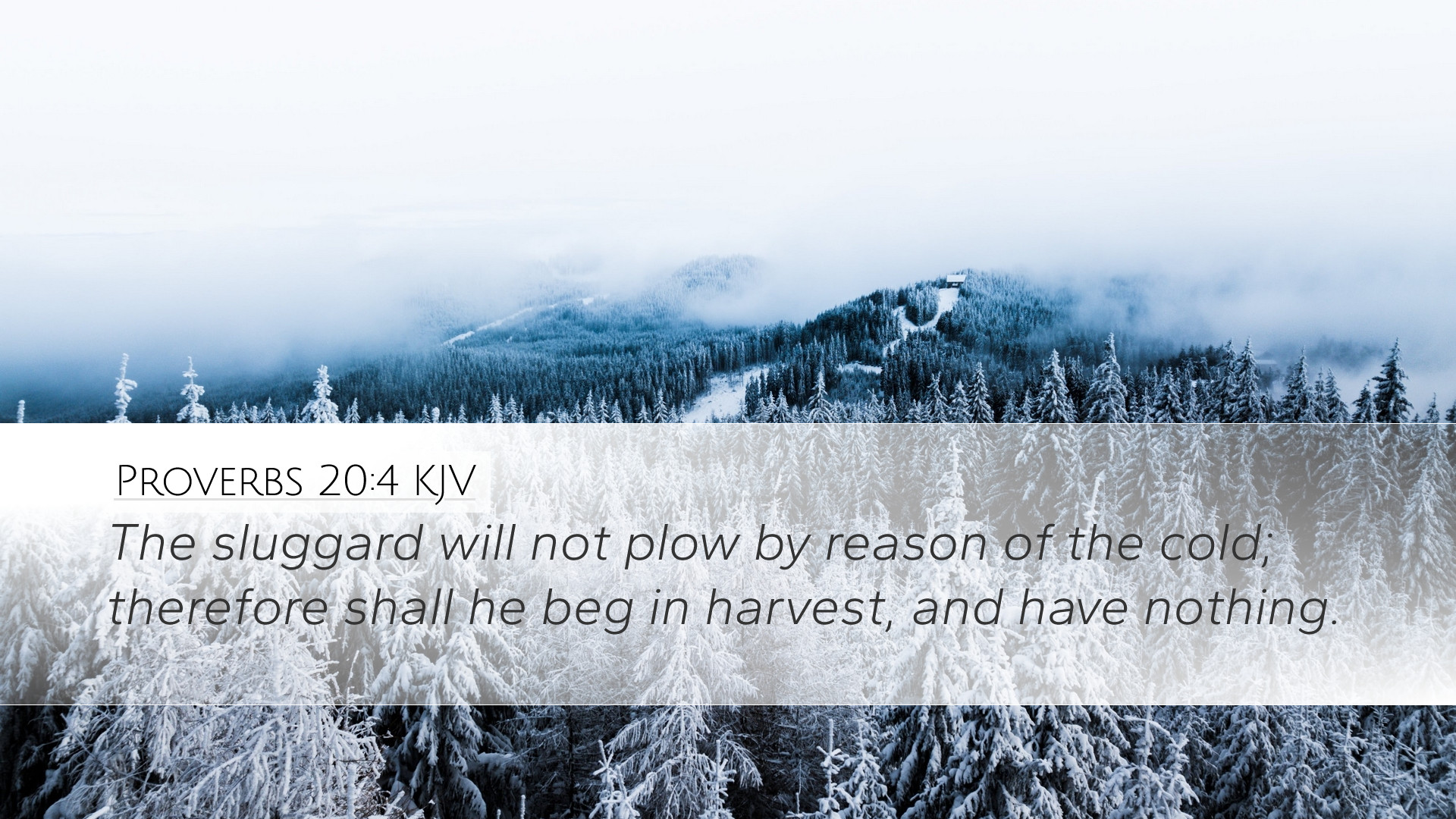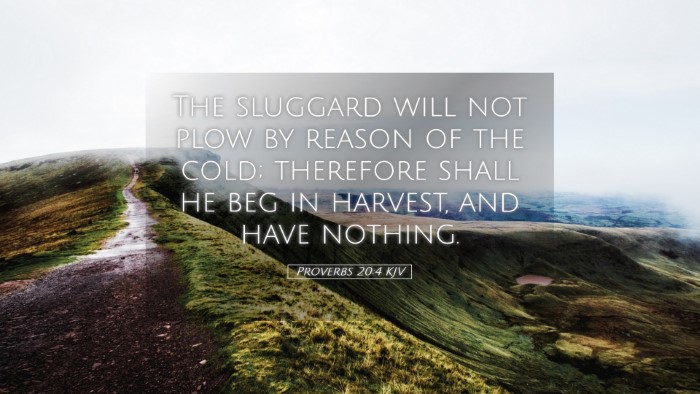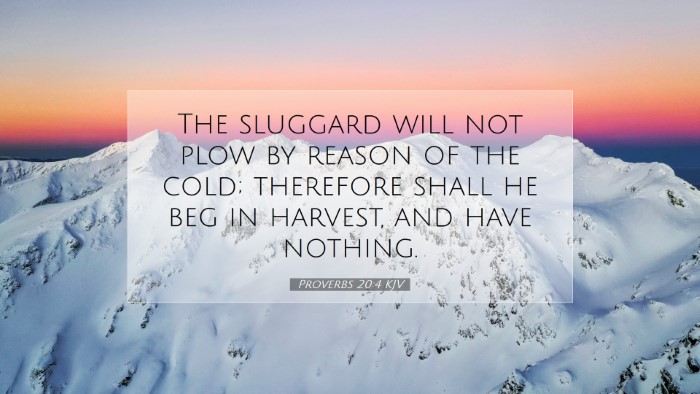Commentary on Proverbs 20:4
Verse: "The sluggard will not plow by reason of the cold; therefore shall he beg in harvest, and have nothing."
Introduction
The verse from Proverbs 20:4 presents a contrast between diligence and laziness, underscoring the dire consequences that arise from a lack of industriousness. In their respective commentaries, Matthew Henry, Albert Barnes, and Adam Clarke provide profound insights into the implications of this verse, which serve as a guide for understanding the broader biblical perspective on work ethic, responsibility, and providence.
Matthew Henry's Commentary
Matthew Henry emphasizes the character of the sluggard, who is one who refuses to engage in labor due to seemingly adverse conditions, such as cold weather. His analysis points out the foolishness of allowing temporary discomfort to hinder one from pursuing necessary work, which in this case, is the plowing of fields.
- The Nature of Laziness: Henry observes that the sluggard's mindset ultimately leads to a cycle of failure. By refusing to plow because of the cold, he neglects the essential work that would yield harvest.
- Consequences of Inaction: The dire outcome is that he will find himself in need, begging for sustenance at harvest time when he should have been reaping the fruits of his labor.
- Spiritual Lessons: Henry further suggests that this practice of procrastination or avoidance in spiritual matters carries significant weight. When we fail to cultivate our spiritual lives, we become spiritually impoverished.
Albert Barnes' Commentary
Albert Barnes provides a practical approach to understanding the implications of this proverb. He notes that the sluggard’s hesitance is often based on fear of hardship, which he equates with a lack of foresight and poor stewardship.
- Fear versus Action: Barnes points out that the cold serves as a metaphor for any inconvenience or adversity that one may encounter in fulfilling responsibilities. The sluggard allows these fears to dictate his actions.
- Economic Implications: He highlights that the failure to plow (a symbol of preparation and work) leads not only to personal consequences but also impacts one’s economic standing within the community.
- Biblical Context: Barnes relates this verse to the larger biblical discourse on diligence and sowing and reaping, reminding readers that spiritual and material realities often mirror one another. The activities of this life can have eternal repercussions.
Adam Clarke's Commentary
Adam Clarke approaches the proverb with a focus on the cultural implications of agricultural work in ancient Israel. His insights reflect on how labor is not only a duty but a vital component of life and community sustainability.
- The Importance of Plowing: Clarke indicates that plowing is essential for a successful harvest, and to avoid it is to directly undermine future sustenance.
- Community and Responsibility: He encourages the understanding that individual actions have communal consequences. By contributing to the harvest through diligent work, one supports the community.
- Moral Responsibility: Clarke emphasizes a theological aspect, linking the idea of work with one's moral duty to God and neutralizing excuses that people often use to justify laziness.
Theological Reflections
This verse and its commentaries prompt deeper theological reflections on the nature of divine providence and human responsibility. It reveals that individuals are expected to actively participate in God’s created order.
- Divine Expectations: God expects diligence and effort in our lives, which is a reflection of His nature as a worker (Genesis 2:2) and also our response to His blessings.
- Faith and Action: The principle of sowing and reaping, severely affected by laziness, reminds believers that true faith manifests in actions, especially in fulfilling daily vocations.
- Spiritual Reflection: The sluggard's condition may serve as an alarm for personal spiritual complacency. Are we, like the sluggard, avoiding the 'plow' of spiritual disciplines out of fear or discomfort?
Conclusion
Proverbs 20:4 serves as a timeless admonition against laziness, presenting stark contrasts between diligence and sloth, and their respective outcomes. The insights of Henry, Barnes, and Clarke collectively reinforce the importance of proactive engagement in both spiritual and practical aspects of life. These commentaries invite pastors, students, theologians, and biblical scholars to reflect on their personal work ethics, their responsibilities to God, and the community they serve.


